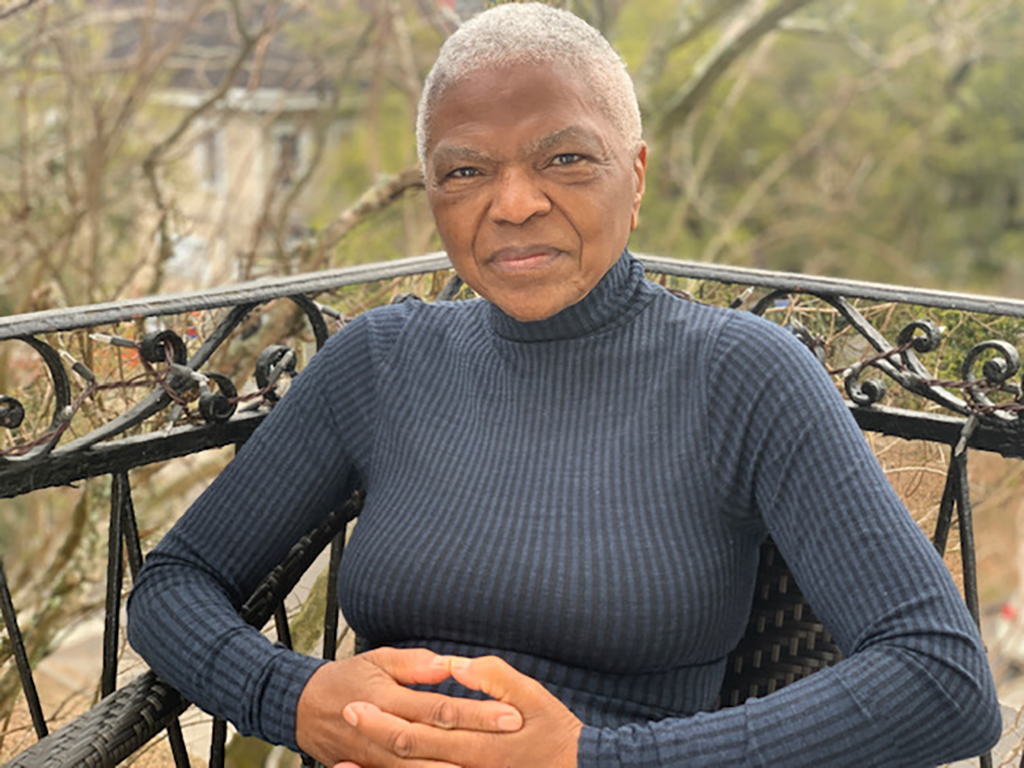‘With the tough issues, you have to be in it for the long haul’

Listen.
This is the word that Dr. Mary Frances Berry repeats, often and directly, during a recent conversation. She delivers it not as a command, but rather as a gentle reminder that only by listening to one another — really listening — can we ever hope to bridge those things that have perilously divided us.
Berry has listened to many voices of both the present and the past during her long and distinguished career as an author, historian, and academic, as well as her service as Assistant Secretary of Education under President Jimmy Carter and an accomplished 24-year tenure as a member and chair of the U.S. Commission on Civil Rights. She has also been a formidable voice on matters of racial and social justice, here and abroad, including as founder of the Free South Africa Movement.
Berry, the Geraldine R. Segal Professor of American Social Thought Emerita at the University of Pennsylvania, will be the featured speaker at Clark’s 118th Commencement exercises on May 22. The following Q&A is excerpted and edited from an interview conducted via Zoom.
In an interview with Trevor Noah on “The Daily Show,” you said, “Every generation has to make its own dent in the wall of injustice. Can you explain what you mean by that?”
The first rule of protest is persistence. Folks who you’re trying to get to do something may think you’ll get tired and say, “This isn’t going anywhere,” and walk away. Some people measure if they succeed by whether they absolutely get the goals they set for themselves — but you may not get equality and justice in your lifetime, or even in the moment; you may not get [action on] climate change to occur while you’re on campus. But you can make a dent; everybody can make dents. And if we just keep making those dents, then in fact we can create change. Especially with the tough issues, you have to be in it for the long haul.
Do you have a personal example?
Well, we helped to end apartheid in South Africa and to give Black people there the right to vote, but the economy is still terrible and inequality persists. So we can’t measure success as [achieving] freedom and justice and everyone is happy. You’ve got to measure success by the change you’ve made that gives other people the opportunity to do something. Make your little dent in the wall of injustice, that’s all I ask. I can tell you that when I was younger, I always thought that change had to be enormous; now I’ve decided incremental change is good, too.
Can we get past our deep national divide to create positive change for our country?
It’s true that lines have hardened and polarization has continued, but we have to find a way to deal with polarization if we want to end it. You don’t deal with it by simply telling the other side, “You people are crazy.” Martin Luther King spoke about this a lot. You have to be willing to put yourself in other people’s shoes; you have to be willing to think, “Why are they doing this? What is it that you perceive that we are not perceiving, and is there some middle way?” Even in times that are not auspicious to your goals, you can still make change.
Has anyone you’ve researched had success with this approach?
A woman I wrote a book about, Callie House, was a former slave who started a reparations movement in the late nineteenth century. One of the things that made her so successful is that she went around to meetings and churches and listened to people tell her how they felt about what was happening to them. When you listen to people, they want to join your movement; when you dismiss people and don’t want to hear what they have to say, you don’t get anywhere. Reconciliation requires listening and seeing.
‘The best way to get something done in academia is to talk to people, to listen to people, even if you think they don’t have the power you have.’
What’s your view of the controversy surrounding critical race theory?
In the academy, we know that critical race theory is just one way of describing systemic racism that exists in the country, a theory that is not something people were supposed to take to the bank as a label. Calling it critical race theory energizes the opposition because they know that ordinary people don’t know what the words mean and that you can define it any way you want. They’re using race as an organizing tool by saying you can’t teach it in elementary school — which no one intended to do anyway.
You’ve been in government and academia. Can effective change come from within those institutions?
Until I worked in the Carter Administration, I’d always protested from the outside. That experience taught me there are ways within the government where you can give a helping hand and facilitate things to create change that is progressive.
The best way to get something done in academia is to talk to people, to listen to people, even if you think they don’t have the power you have. Listen to the students. Bring them in, ask them what they would do about this or that problem, and how you can balance interests. [She laughs] And students have to be persistent, because people think at the end of the semester they’re going away.
Clark University’s 118th Commencement will take place at noon Sunday, May 22, 2022, on the Campus Green outside Jefferson Academic Center. Visit our Commencement site for more information, including Livestream links to watch the ceremonies online.


